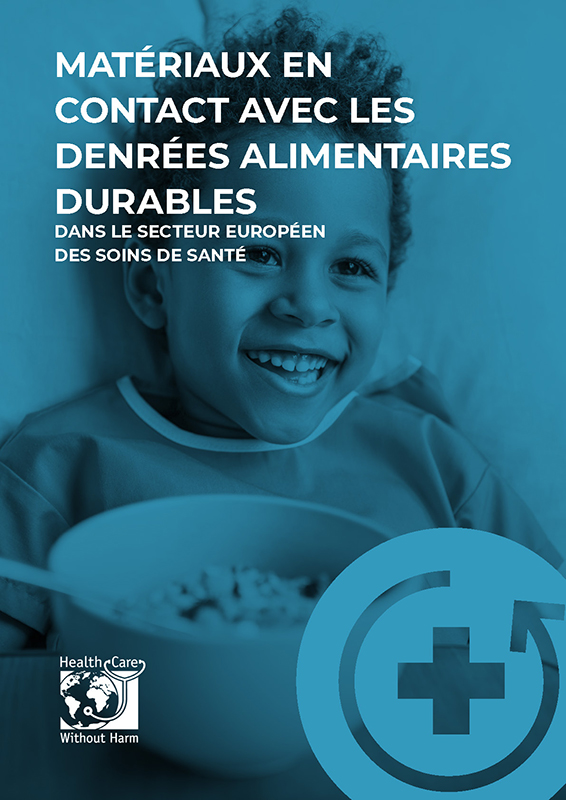Promoting sustainable food contact materials in French and Dutch
Featuring case studies from across European healthcare, our publication Sustainable food contact materials in the European healthcare sector, provides information on the health and environmental risks of commonly used food contact materials (FCMs). Now available in five languages, this factsheet assesses the regulatory shortcomings that enable these risks and provide recommendations for healthcare food services and policy makers to reduce them.
Available in EN | ES | FR | NL | PT
Reducing risk in healthcare food services
FCMs play an important role in food services in healthcare. There are, however, health and environmental risks associated with certain FCMs, especially single-use items, which are becoming increasingly common.
Protecting vulnerable patients is a top priority, as they have the highest risks from exposure to plastic and toxic chemicals. In this publication, now available in French and Dutch we demonstrate how exposure to plastic from FCMs can be reduced for vulnerable populations.
Featuring four case studies from hospitals in Spain, France, and the UK, we offer examples of reducing plastic use in healthcare food services and preventing harm from hazardous FCMs. We encourage healthcare food services to adopt FCMs that are safe for both human health and the environment.
Though current legislation does not provide sufficient protection and a planned review of EU packaging rules is delayed, the healthcare sector can already take action and play a key role in protecting patients and workers by phasing out unsafe products and wasteful practices currently permitted by weak legislation or loopholes.
Read the publication in EN | ES | FR | NL | PT
Want to stay up to date? Subscribe to HCWH Europe and join the sustainable healthcare movement.
HCWH Europe gratefully acknowledges the financial support of the Commission Communautaire Commune (COCOM) to translate this publication. HCWH Europe is solely responsible for the content of this project and related materials. The views expressed do not reflect the official views of the COCOM.



